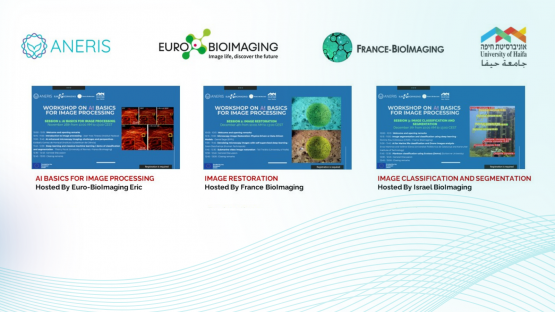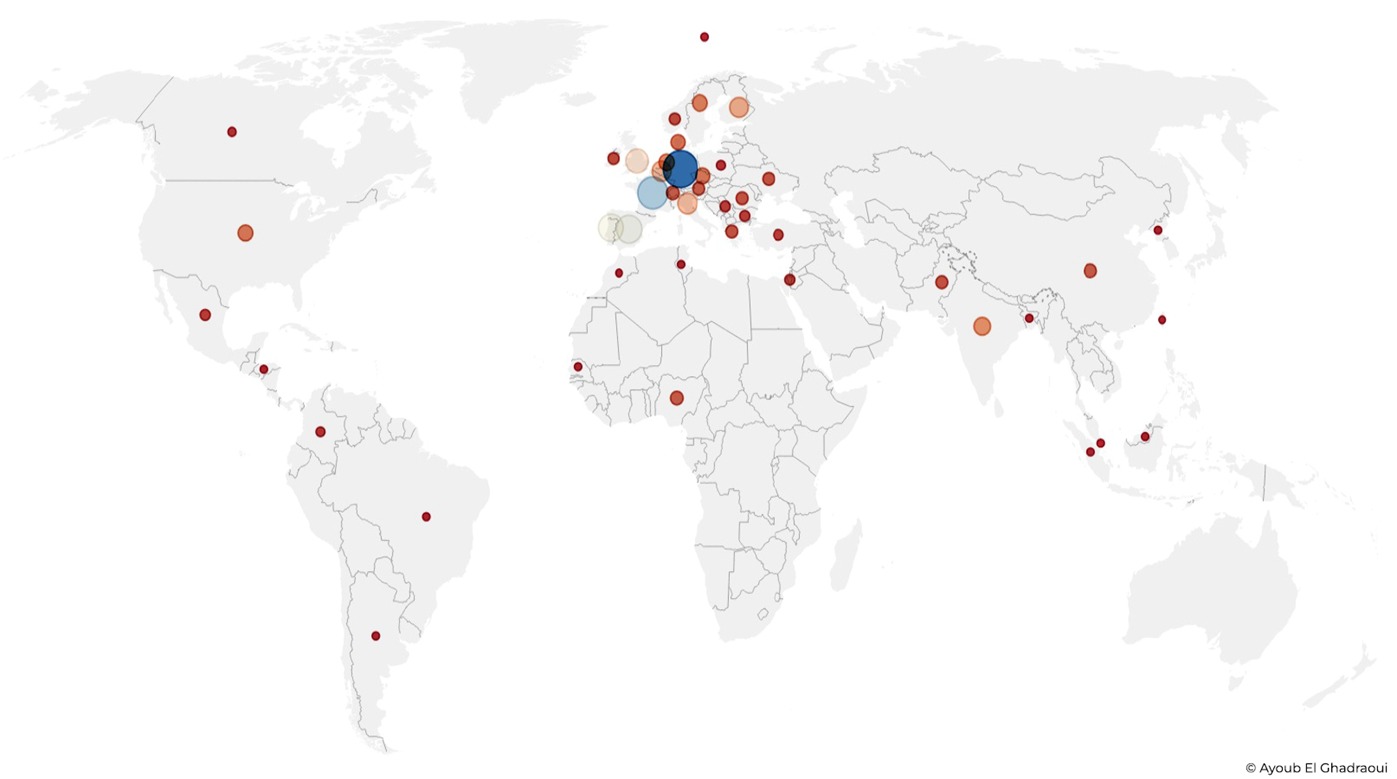
Looking back at the ANERIS Workshops
The end of November and the first week of December marked an exciting milestone for ANERIS. Our partners from Euro-Bioimaging, France Bioimaging, and University of Haifa organized a public imaging workshop “AI Basics for Image Processing” which enjoyed high attendance and a great public response.
Over 400 people registered for each of the three sessions, and each was joined by more than 150 participants from all around the world (see Image 1).

Each of the three sessions was curated thematically and involved speakers from many institutions, including ANERIS participants.
The first theme “AI Basics for Image Processing” featured talks on “Introduction to image processing” (Jean Yves Tinevez - Institut Pasteur), “AI enhanced microscopy imaging: challenges and perspectives” (Estibaliz Gomez de Mariscal - Instituto Gulbenkian de Ciencia) and “Deep learning and classical machine learning / demo of classification and segmentation” (Thierry Pecot - Rennes University & France Bioimaging)
The second session “Image Restoration” featured talks on “Microscopy Image Restoration: Physics-Driven or Data-Driven Models” (Daniel Sage - EPFL), “Denoising microscopy images with self-supervised deep-learning” (Joran Deschamps - Human Technopole), and “Submarine video image restoration” (Tali Treibitz - University of Haifa)”
The final session was organized around “Image Classification and Segmentation”, with talks on “Image segmentation and classification using deep learning” (Perrine Paul-Gilloteaux - CNRS - France Bioimaging), “AI for Marine life classification and Drone images analysis” (Enoc Martinez - the Universitat Politecnica de Catalunya and the iMagine project & Elena Vollmer - the Karlsruher Institute of Technology and the AI4EOSC project), and “Plankton classification using Ecotaxa (Demo)” (Victor Retanauer - FOTONOWER & Sorbonne University).
The exciting sessions provided a unique opportunity for participants to delve into the complex intersection between AI and imaging, interact with accomplished researchers at the forefront of imaging science, ask questions, and gain insight into the potential future of this field.
For anyone who missed the live workshops, the slides are available in Zenodo, and the recordings are available as a playlist in the Euro-Bioimaging YouTube channel.
We want to sincerely thank all participants, presenters and organizers for the amazing event.